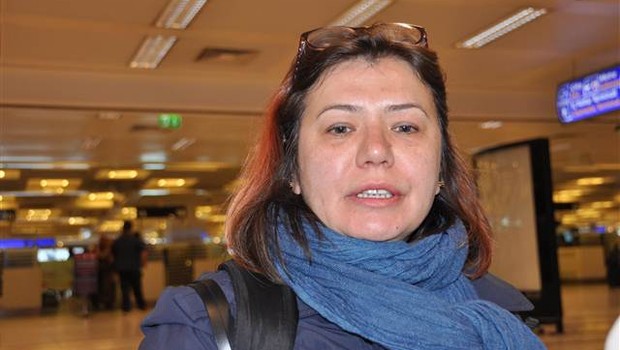A fourth academic has been arrested for signing a declaration criticizing curfews declared in the predominantly Kurdish southeastern districts, days after three academics were put into prison pending trial.
Assistant professor Meral Çamcı was arrested on Thursday for “disseminating terrorist propaganda” by signing the declaration titled, “We will not be a party to this crime,” criticizing curfews declared in the predominantly Kurdish southeastern districts. Çamcı, who is the fourth such academic to be arrested for signing the declaraiton, had already been fired from her position at the Yeni Yüzyıl University.
Earlier in March, academics Esra Mungan, Muzaffer Kaya and Kıvanç Ersoy were arrested for signing the declaration, upon charges that may see them receive up to 7.5 years in prison.
Over 1,100 academics from 90 universities signed the declaration on January 11, wherein they called on the government to halt the on-going operations in south-eastern Turkey, restore national peace and return to the negotiating table to restart the shelved talks with Kurds to find a peaceful solution to the Kurdish issue.
The declaration was slammed by many pro-government circles claiming it did not criticize the terrorist Kurdistan Worker’s Party (PKK) and only touched upon the alleged human rights violations committed by security forces whilst conducting operations against the PKK.
The anti-terror and organized crime unit of the İstanbul Public Prosecutor’s office has been investigating the academics who signed the declaration in January. Çamcı came to the İstanbul court house on Thursday for a preliminary hearing, in which the court ordered for her arrest, pending trial.
The court has begun taking defense statements from 733 of the academics who signed the declaration. Turkish media reported that the İstanbul Public prosecutor’s office has also written to the Higher Education Board (YÖK) to begin administrative proceedings against the academics. The remaining 395 academics are being investigated by the Ankara Public Prosecutor’s Office.
Prime Minister Ahmet Davutoğlu recently said that he is opposed to the arrest of academicians as reaction mounts among the public against the arrests. Speaking to reporters on his trip to Jordan, Davutoğlu said, “If there are no legal obligations, I am against people being jailed pending trial, on principle. If there is acquittal at the end of the ordeal, then that person’s restriction of freedom is not something that can be paid back.”
“They [the state] can give a person the highest penalty, but shouldn’t take away the freedom to talk and walk” he said. “As an academician who suffered oppression during the 28 Feb [coup era] I say, ‘I cannot accept any restriction on type of thought. That academician from Boğaziçi University [Esra Mungan] was someone who also opposed the headscarf ban in the past. I have no negative views about her, on the contrary I have heard of her libertarian stance.”
The operations against the PKK began after the frail ceasefire set up in 2013, as part of the settlement process was ended on July 22, 2015 when the PKK killed two police officers. The separatist group said it acted in retaliation for the state failing to prevent a suspected Islamic State of Iraq and the Levant (ISIL) militant detonating a suicide bomb in Şanlıurfa’s Suruç district and killing 34, injuring over 100, in July 2015.
The declaration frustrated President Recep Tayyip Erdoğan and the Justice and Development Party (AK Party) government. Some of the insults Erdoğan used against the academics include: “so-called intellectuals,” “a flock called intellectuals”, “traitors” and “rough copies of intellectuals.”

